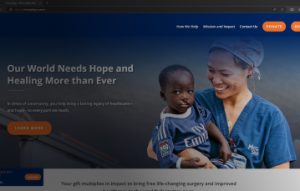Outsourcing software development has become a strategic advantage for businesses looking to innovate and scale without the significant investment associated with building an in-house team. As companies increasingly seek to leverage global talent pools, outsourcing provides a flexible and cost-effective solution for accessing specialized skills and speeding up time-to-market. However, the success of your project hinges on finding the right development partner. A misstep in this critical process can lead to delays, budget overruns, and unsatisfactory results.
In this blog, we will delve into the top questions to ask before outsourcing software development in 2024. These essential inquiries will help you evaluate potential partners, clarify your project expectations, and facilitate a smooth collaboration that aligns with your business objectives. Whether you’re a startup or an established enterprise, these insights will guide you in the decision-making process, helping you avoid common pitfalls and make informed choices that enhance your chances of success.
1. Top Questions to Ask Before Outsourcing Software Development
Questions 1: What is your primary objective for outsourcing?
Before embarking on the outsourcing journey, it’s crucial to clearly define your main objectives. Are you looking to reduce costs, accelerate time-to-market, or gain access to specialized skills that your internal team lacks? Clearly defining these goals will help you select the right outsourcing partner and set appropriate expectations. Common objectives include:
- Cost Reduction: Outsourcing can significantly reduce expenses without compromising quality. This is especially important for startups or small businesses with limited budgets.
- Skill Augmentation: Accessing experienced specialists that are not available within your team can bring immense value to your project, particularly when dealing with new technologies or complex requirements.
- Speeding Up Development: Outsourcing can expedite the development process, allowing you to launch your product sooner than an in-house development. In a competitive market, time-to-market can be a critical differentiator.
Questions 2: What specific tasks will you outsource?
Clearly defining the tasks you intend to outsource is essential. Do you need a complete software solution from scratch, or just support for specific components of the development process? A well-defined scope will help you find a partner that aligns with your needs.
- Complete Application Development: If you require a fully developed application, ensure that your partner can handle all aspects of the project, from planning and design to implementation and maintenance.
- Specific Support: If you only need assistance with certain areas, such as user interface design or API integration, be specific in your requirements to find teams with specialized expertise in those areas.
Questions 3: What is your estimated budget for the project?
Setting a budget for the project is a vital step in ensuring that you can find a suitable development partner within your financial plan. When establishing your budget, consider the project’s complexity, the skills required, and the timeline for completion.
- Flexible Budgeting: Be cautious not to set an overly restrictive budget that might prevent you from accessing high-quality partners. Sometimes, investing more in a skilled team can yield greater long-term value.
- Cost Allocation: Remember to allocate budget for other aspects of the project, such as testing, maintenance, and post-launch technical support, as these are critical for maintaining the product’s operational stability.
Questions 4: What are your deadlines for project milestones?
Once you have established a budget, it is essential to set timelines for key milestones within the project. You need a clear schedule outlining when each phase of the project should be completed.
- Flexible Scheduling: Be prepared for unforeseen changes that may require you to adjust your timeline. Discuss your timeline with the outsourcing partner to ensure they can meet your schedule and understand the critical deadlines.
- Buffer Time: Keep in mind that working with an external team may take longer than in-house development. Factor in additional buffer time to avoid unnecessary stress.
Questions 5: What quality standards do you expect?
Defining the quality standards you expect is vital to ensure the final product meets your requirements.
- Clear Testing Criteria: Provide specific metrics for product quality, such as performance, security, and scalability. This will help the partner understand your expectations and commit to meeting those criteria.
- Quality Control Processes: Ensure that you understand how the partner will implement quality control throughout the development process, from design to deployment.
Questions 6: How will you facilitate communication with the outsourcing team?
Establishing an effective communication plan is essential for a successful collaboration. Discuss the communication tools, frequency of updates, and points of contact within both organizations.
- Communication Tools: Select appropriate tools, such as Slack, Microsoft Teams, or Zoom, and determine how you will use them throughout the development process. This will improve connectivity between both parties and reduce potential misunderstandings.
- Regular Updates: Set a specific schedule for meetings and progress updates to ensure everyone is kept informed about the project status in a timely manner.
Questions 7: What project management tools will you use?
Identifying project management tools will help monitor progress and improve work efficiency. Ensure that both parties agree and are comfortable with the chosen tools.
- Clear Methodologies: Depending on your team’s workflow, choose a suitable project management methodology such as Agile, Scrum, or Kanban. This will enhance transparency and collaboration between both parties.
- Tracking and Adjustments: Utilize project management tools to track progress and make adjustments as necessary. Create a space for continuous feedback from both sides.
Questions 8: What testing processes will be implemented?
Establishing a testing strategy is crucial to ensure the functionality and reliability of the product. Discuss the types of testing that will be performed (such as unit testing, integration testing, user acceptance testing) and how quality will be ensured throughout the development process.
- Continuous Testing: Propose conducting testing regularly throughout the development, rather than only at the end of the project. This will help identify and resolve issues promptly, preventing significant problems from arising later.
- Reporting Results: Ensure there is a clear reporting and evaluation process for testing results, which will allow you to easily track progress and product quality.
Questions 9: What support will be available post-launch?
Clarify the support and maintenance services that the outsourcing partner will provide after the project is completed. This will ensure that you have the assurance that the product will be maintained and updated in a timely manner.
- Technical Support: Define the support channels you can utilize if issues arise, such as email, phone, or a ticketing system. Ensure you are aware of the response times and level of support offered.
- Updates and Maintenance: Negotiate beforehand about regular maintenance agreements and updates, ensuring your software remains current and operates smoothly.
Questions 10: Are you prepared to provide necessary project documentation?
Finally, make sure you have all the documentation and resources needed to support the outsourcing team. This includes project specifications, design documents, and any existing code.
- Comprehensive Documentation: Providing detailed documentation will help the development team understand your requirements and expectations better. This not only saves time but also enhances work efficiency.
- Resource Support: If you lack the necessary documentation, consider investing time to create or update it before starting the outsourcing process. This will help avoid issues during collaboration.
2. Are You Searching for a Reliable Outsourcing Partner? Look No Further Than ONEXT DIGITAL!
In a rapidly evolving digital landscape, businesses face the challenge of adapting to new technologies and market demands. For many, the solution lies in outsourcing, allowing them to access specialized skills, reduce costs, and focus on their core competencies. However, the key to successful outsourcing is partnering with the right team—one that not only understands your industry but also shares your vision for success. That’s where ONEXT DIGITAL comes into play.
Why ONEXT DIGITAL Stands Out as Your Ideal Outsourcing Partner?
-
Expertise Across Diverse Industries
At ONEXT DIGITAL, we pride ourselves on our extensive experience across a variety of sectors, from e-commerce and healthcare to finance and education. Our team of seasoned professionals understands the unique challenges each industry faces and tailors solutions that drive measurable results. By leveraging our industry knowledge, we can provide insights and strategies that keep you ahead of the competition.
-
Commitment to Quality and Innovation
Quality is at the heart of everything we do. ONEXT DIGITAL employs a rigorous quality assurance process that ensures every project meets the highest standards. Our commitment to innovation means we stay updated with the latest technologies and trends, enabling us to implement cutting-edge solutions that elevate your business.
-
Agile Project Management
We understand that flexibility is crucial in today’s fast-paced environment. Our agile project management methodologies allow us to adapt to changes swiftly, ensuring that your project stays on track and meets deadlines. Regular communication and transparent processes are integral to our approach, fostering collaboration and trust throughout the development lifecycle.
-
Access to a Talented Pool of Professionals
ONEXT DIGITAL boasts a diverse team of experts, including developers, designers, and project managers, each bringing a unique set of skills to the table. This collective expertise ensures that we can tackle projects of any complexity, delivering tailored solutions that align with your goals.
-
Long-Term Partnership and Support
We believe that successful outsourcing is not just about completing a project; it’s about building lasting relationships. ONEXT DIGITAL is dedicated to providing ongoing support and maintenance, ensuring that your solutions remain effective and relevant long after the initial launch. We are here to help you navigate future challenges and seize new opportunities.
3. Conclusion
Outsourcing software development can be a transformative decision for your business, but it requires careful consideration and planning. By asking the top questions to ask before outsourcing software development outlined in this article, you can identify the right partner who aligns with your goals and expectations.
At ONEXT DIGITAL, we are committed to being that partner for you. Our experienced team is dedicated to delivering innovative solutions tailored to your unique needs. With our expertise and collaborative approach, we ensure a successful outsourcing experience that drives your business forward.
Choose ONEXT DIGITAL for your software development needs, and let us help you thrive in the dynamic digital landscape of 2024 and beyond.






